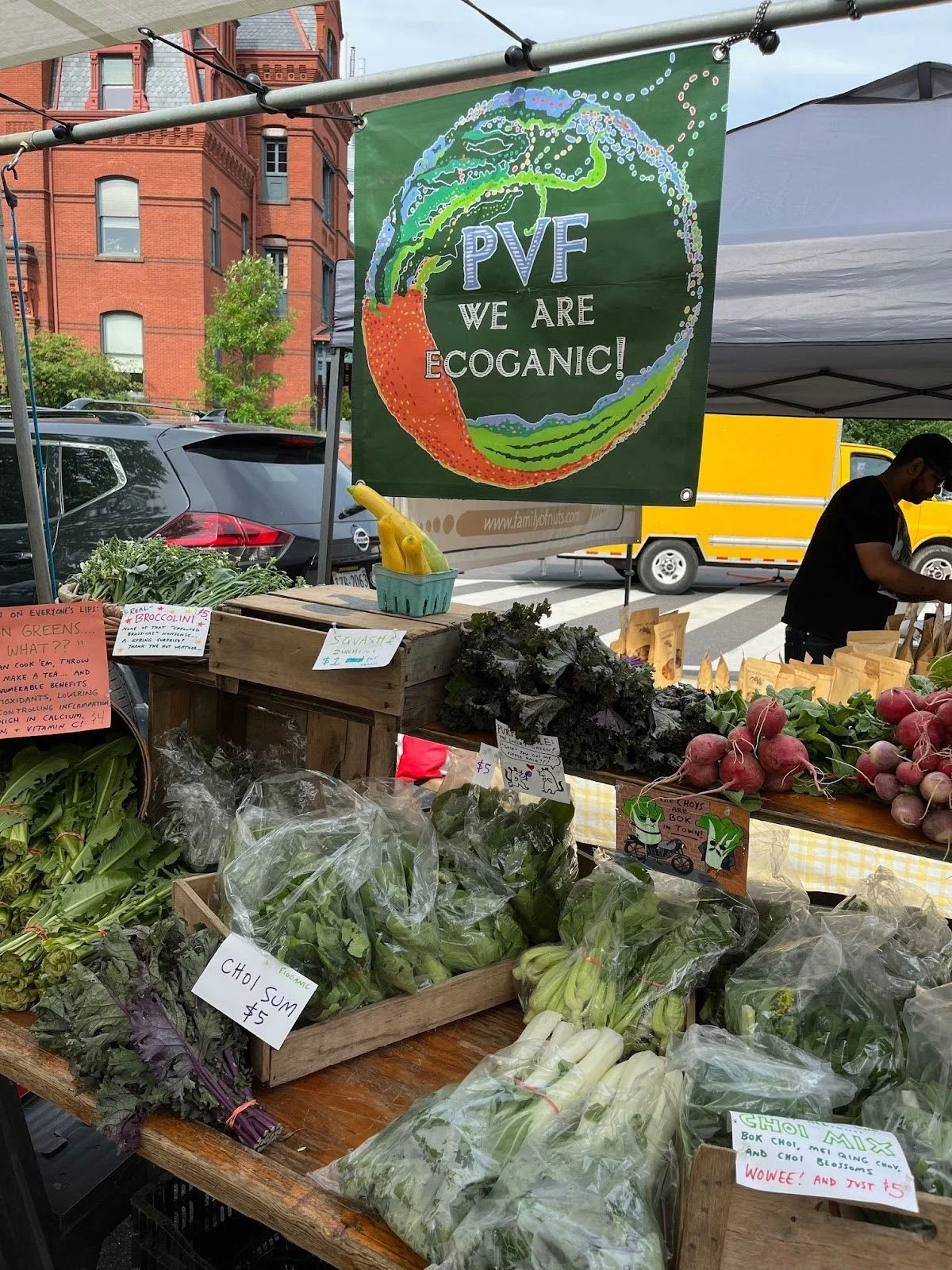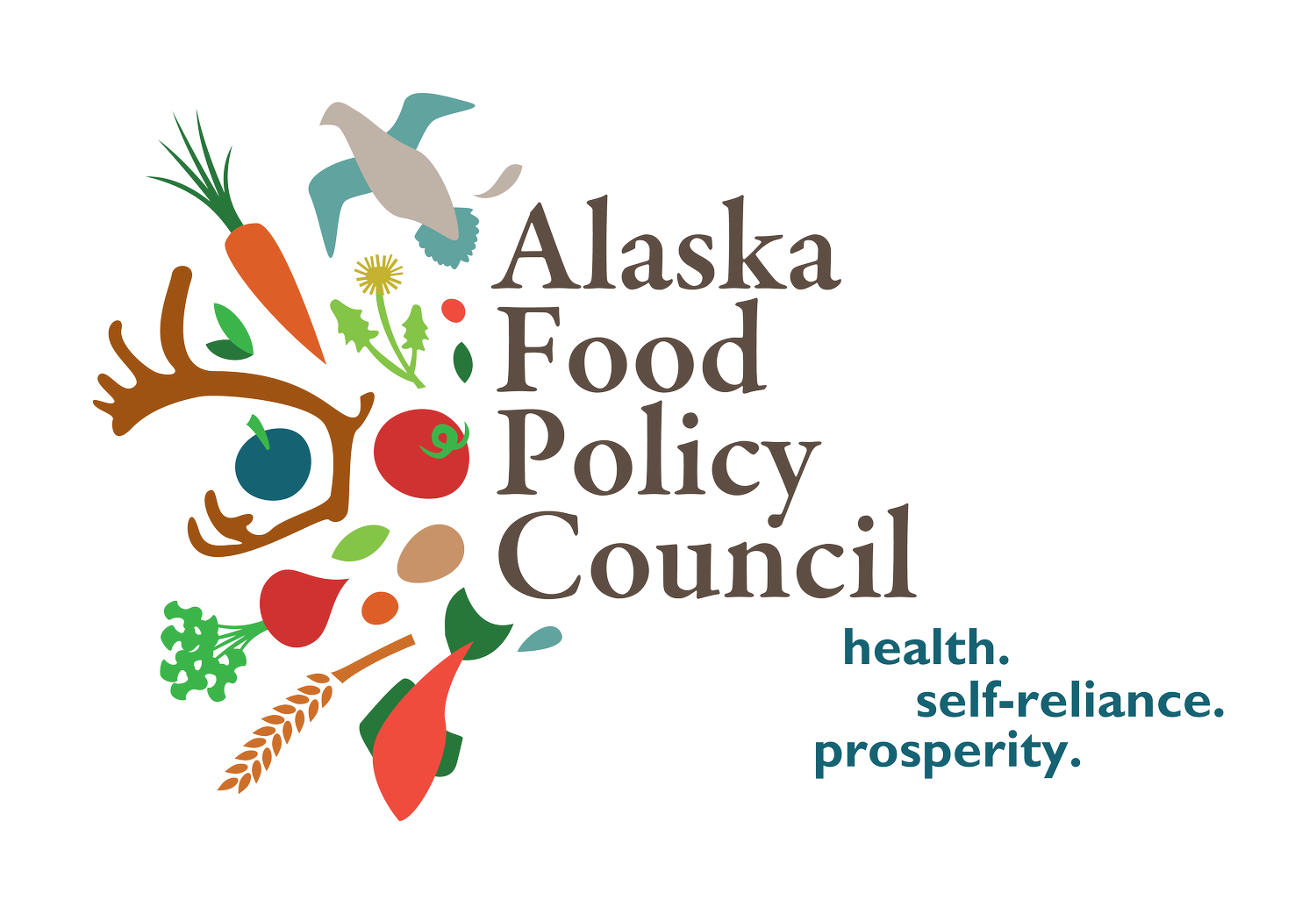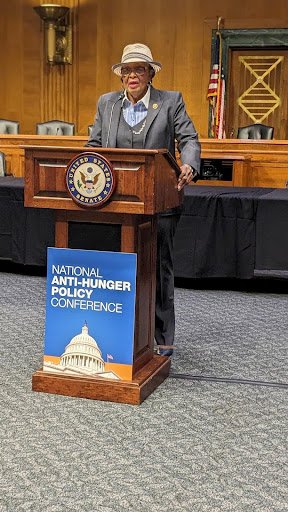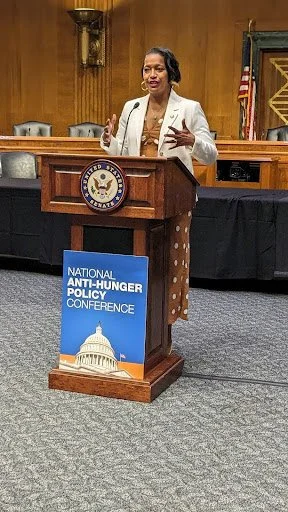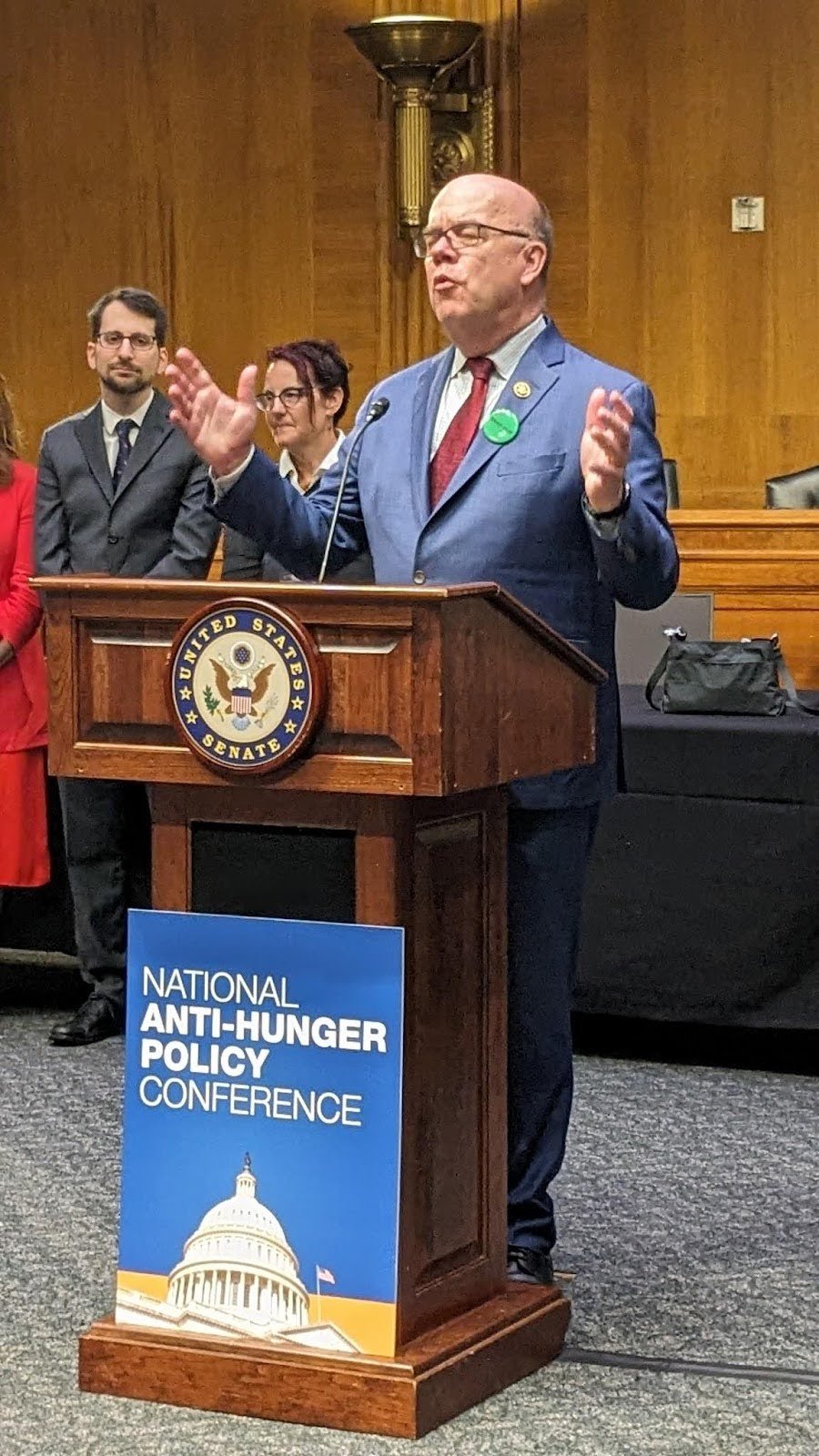AFPC In DC: Trip Report
By Rachel Lord, Policy and Advocacy Director, AFPC
From left to right: Joe Atchak (Bethel Community Services), Carey Atchak (Bethel Community Services), Rachel Lord (AFPC), Dwayne Patterson (Catholic Social Services), Ellen Teller (FRAC), Ron Meehan (Food Bank of Alaska & AFPC Board Member), Robbi Mixon (AFPC), Gus Schmidt (Food Bank of Alaska), Kimberly Bishop (Nome Community Center), Rachael Miller (Food Bank of Alaska & AFPC Board Member), and Alison McCullough (Upper Susitna Food Pantry).
On Wednesday, June 5, before heading into the offices of our Senators and Representatives on Capitol Hill in DC, anti-hunger advocates from around the country gathered to hear policy updates from four members of Congress. We were all there as part of the Food Research & Action Center (FRAC)’s Anti-Hunger Policy Conference. The speeches were inspiring and clear - the SNAP cuts proposed in the Farm Bill cannot stand (‘With hunger, climate cuts, US House farm bill proposal faces slim Senate odds’, Reuters, May 17).
Over the first week of June, Robbi and I, in DC on behalf of the Alaska Food Policy Council, took this and other food system messages to our Congressional and USDA agency partners. We met and made connections with partners in Puerto Rico and Hawaii as part of MAZON’s Emerging Advocacy cohort. We shared stories of our food systems, challenges, and opportunities with food council partners from across the country. We got updates from USDA and a whole slew of resources to share back home. We found a fabulous Farmers Market in Dupont Circle! It was a packed week and we’re excited to share some key takeaways with y’all!
“A red line we will not cross” - Rep. Alma Adams, speaking of the proposed $30 billion in cuts to SNAP within the House Ag Committee’s Farm Bill proposal
“I did not come to Congress to starve children.” - Rep. Jahana Hayes
“None of us are going to pass a bill that increases hunger in America.” - Rep. Jim McGovern
Alaska’s food system partners are doing a great job leveraging many federal opportunities!
We had the pleasure of meeting with a fabulous alphabet soup of USDA agency partners: the Office of Tribal Relations (OTR), the Farm Service Agency (FSA), the Agricultural Marketing Service (AMS), and the Food and Nutrition Service (FNS). Especially in conversations with AMS, we can see how successfully AFPC and other partners have leveraged federal opportunities to grow and strengthen Alaska’s food system. Work remains to be done, and we are focusing on increasing coordination between agencies and food system sectors (i.e. food access & production), growing and sharing technical assistance opportunities through the Regional Food Business Center, and continuing to partner in collaboration with other organizations to bring federal dollars into our food system through programs like: LFPA, FNPP, LFPP, RFPA, and others; you can look through a fantastic list of USDA opportunities here.
Change is possible through coalition building, strategic advocacy, and state investment.
Over two days of informative conference sessions, we heard from federal and state agencies and advocacy groups from across the country on their successes and progress in reducing hunger in America. Common to nearly all success stories were strong coalitions of partners, including impacted stakeholders, that were built over time with common goals. Advocacy strategies were also highlighted, including reminders to understand who pulls the levers or can make the change you’re looking for. Sometimes that is administrative - it’s something the agencies can do. Other times it’s legislative - change will have to come from Congress or your state legislature. Working across and understanding our administrative and legislative landscape is critical to successful change-making. And finally, across the board, strong investment from the state is invaluable in leveraging federal opportunities.
Alaska has opportunities still sitting on the table!
USDA provided us with a huge array of resources, links, contacts, and programs to help our communities reduce hunger. There are some that Alaska is taking advantage of - this summer, the Food Bank of Alaska is partnering with the Department of Education and Early Development (DEED) Child Nutrition Programs to provide “non-congregate meals” to kids in rural districts. In other words, they are sending food directly to homes (vs. in group, or congregate, settings like summer camps or schools) to help nourish kids who qualify during the school year for free or reduced meals (learn more about Meals To You). We’re enthusiastic about this effort, appreciate the logistical hurdles they are working through, and understand the lift it takes to get a program like this off the ground. We also see a lot of opportunities within USDA’s other SUN programs - Summer Nutrition Program for Kids. We look forward to continuing to work with our state agencies, DEED and the Department of Health, to leverage federal programs to benefit Alaskans!
Be unapologetic about the costs.
As a policy-maker myself (I sit on the City Council in Homer), this was a hard but honest statement made about the costs of school lunches. The same can be said for SNAP and other nutrition programs. It is unacceptable that people in the United States are hungry, and it is a political decision. It is up to our State Legislatures and Congress where we invest our public dollars. Many kids around Alaska and the nation get their only meals of the day during school. Healthy school meals for all kids is, yes, expensive. But making sure all of our kids are fed should be a top priority, regardless of the cost. Similarly, we have expressed concerns that US Citizens from Puerto Rico are not eligible for SNAP. Instead, they receive NAP - a reduced version of SNAP, providing territorial citizens with a substandard level of food assistance. While a transition from NAP to SNAP would cost money, we contend that Congress spends billions of dollars and ensuring US Citizens across our nation have equal access to food assistance should be a clear priority.
Understand IMPACT over intent.
On Tuesday afternoon, we heard from Equitable Spaces on ‘The Dignity of Choice: Preserving Access to Affordable, Nutritious Food”. This was a phenomenal presentation, and they challenged a lot of common ideas that place judgment and restrictions on what people eat. They asked the simple yet massive question: who gets to decide what food is healthy, and for whom? Concepts like ‘food gentrification’ were dissected, caution was raised around ‘food as medicine’ prescription programs, and we were reminded that the solution to food insecurity is not controlling people’s diets. Centering people with lived experience as valuable stakeholders, and creating conditions for people to step into their own power and food security was a powerful and important message.
From the National Sustainable
Agriculture Coalition, a basic overview of the path to a new Farm Bill. We are at the top right now, with a lot left on the table between now and the signing of a new bill.
See their Farm Bill 101 website here.
The more eyes on the Farm Bill as it moves through, The Better!
We feel tremendously grateful for excellent relationships with all of Alaska’s delegation, and we thank them and their staff for making time for meetings with us while we were in DC. We’ll leave you with this big takeaway from meetings with our Senators in DC - the Farm Bill IS moving through Congress, and the more eyes we have on it from Alaska the better! We at AFPC have put together a basic Farm Bill 101 web page for some background information to get you started if this is your first time around with the Farm Bill. We are working with partners to track priorities in Alaska and share them with our Congressional delegation. You can see our most current comments, and updates on Farm Bill activity, here.
Have questions? Priorities? Reach out and let us know. We’ll be keeping a regular line of communication with DC, and encourage you to as well!
Check out our DC pictures below!







